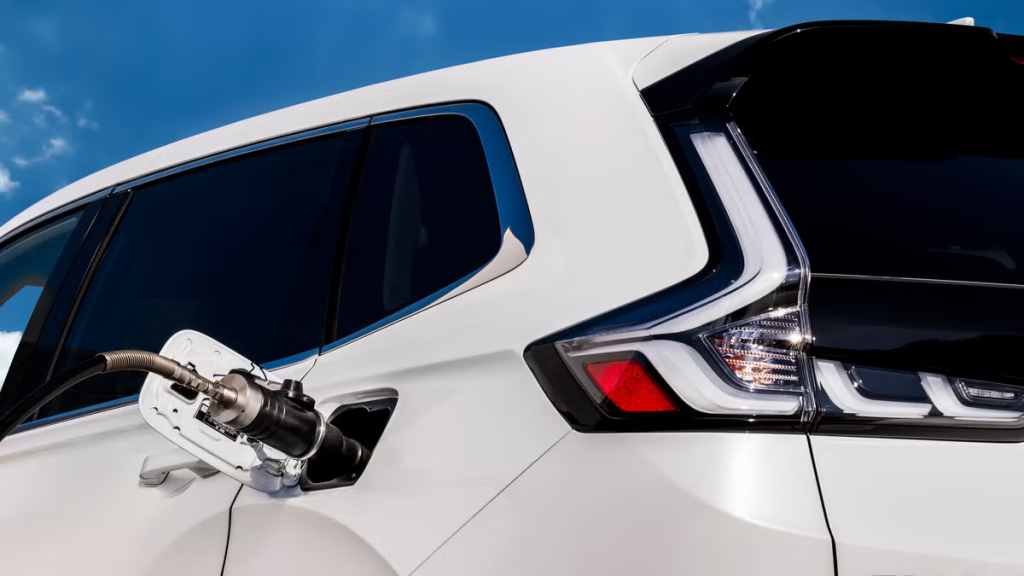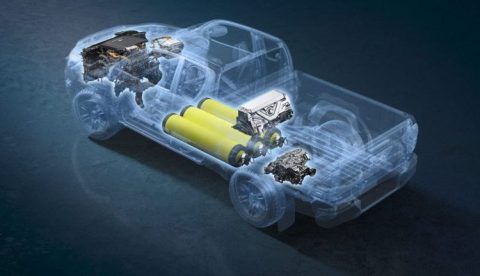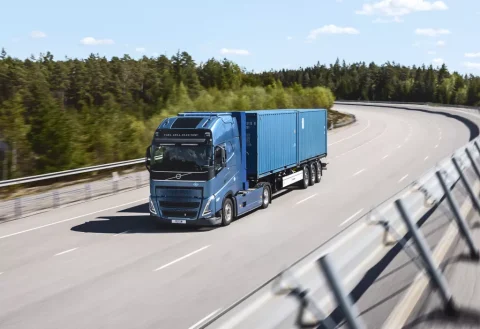Hydrogen fuel cell vehicles (FCVs) offer a sustainable transportation alternative that combines the convenience of traditional vehicles with zero-emission technology. Unlike battery electric vehicles (BEVs), FCVs generate electricity through hydrogen-powered fuel cells, providing unique advantages for specific transportation needs.

What Are Hydrogen Fuel Cell Vehicles?
FCVs use hydrogen gas to power an electric motor through an electrochemical process. The system converts hydrogen into electricity within the fuel cell stack, producing only water vapor as a byproduct. This makes FCVs a genuine zero-emission transportation solution that aligns with modern sustainability goals.
How Do Hydrogen Fuel Cells Work in Vehicles?
The FCV power generation process operates through a sophisticated electrochemical system. Compressed hydrogen stored in high-pressure tanks flows into the fuel cell stack, where it reacts with oxygen from the air. This carefully controlled reaction generates electricity to power the vehicle’s electric motor, while clean water vapor exits through the exhaust system. The process is continuous as long as hydrogen fuel remains in the tank, ensuring consistent power delivery throughout the journey.

Essential Components of Hydrogen Fuel Cell Vehicles
The hydrogen storage system forms the foundation of FCV technology, utilizing reinforced tanks that store hydrogen at 700 bar pressure. These tanks feature multi-layer carbon fiber construction and advanced safety systems that constantly monitor tank integrity. The fuel cell stack contains multiple cells with specialized membranes, integrating anode and cathode systems with an efficient electrolyte membrane for optimal power generation. A high-efficiency electric motor provides propulsion, while an advanced power control unit manages energy flow and integrates with the regenerative braking system.
Benefits of Hydrogen Fuel Cell Vehicles
- Quick adoption potential
- 3-5 minute refueling time
- 300-400 mile driving range
- Consistent performance in cold weather
- Zero direct emissions
- Smooth, quiet operation
- Minimal maintenance requirements
- Scalable technology platform
Current Challenges in Hydrogen Vehicle Adoption

- Limited hydrogen fueling infrastructure
- Higher initial vehicle costs
- Current hydrogen production costs
- Need for standardized fueling protocols
- Infrastructure development timeline
- Production scale challenges
- Market acceptance factors
- Regulatory framework development
Industrial and Commercial Applications
The commercial transport sector presents particularly promising opportunities for hydrogen fuel cell technology implementation. Long-haul trucking benefits from the quick refueling times and extended range capabilities, while public transportation systems can leverage the zero-emission benefits for urban environments. Industrial vehicle fleets gain advantages from the consistent power delivery and minimal downtime, and heavy machinery operations benefit from the robust performance characteristics. Marine transportation applications are also emerging, with hydrogen fuel cells offering a viable path to decarbonizing shipping operations.
Environmental Impact and Sustainability
The environmental impact of FCVs extends beyond their zero-emission operation. Current hydrogen production predominantly relies on natural gas, though the industry is rapidly shifting toward green hydrogen production from renewable sources. This transition promises to establish a truly zero-emission energy cycle. Infrastructure development increasingly focuses on sustainable production methods, while the overall carbon footprint continues to improve as production methods advance. The integration of hydrogen production with renewable energy systems creates synergistic opportunities for comprehensive environmental benefits.

Future of Hydrogen Vehicle Technology
Major automotive manufacturers continue to advance FCV development, focusing on improving efficiency and reducing production costs. Infrastructure expansion progresses in key markets, supported by government initiatives and industry partnerships. Technological advancements drive cost reduction across the hydrogen value chain, while integration with renewable energy systems creates new opportunities for sustainable transportation solutions. The sector’s evolution demonstrates strong potential for widespread adoption in specific transportation segments.
Conclusion
Hydrogen fuel cell vehicles represent a crucial component of future clean transportation, particularly in applications requiring quick refueling and extended range capabilities. As infrastructure expands and production costs decrease, FCVs are positioned to play an increasingly important role in achieving zero-emission transportation goals. Their particular strength in heavy-duty and commercial applications, where battery electric alternatives face limitations, suggests a clear path forward for this technology in the sustainable transportation landscape.
Did You Know? Nikola Files for Chapter 11 Bankruptcy













